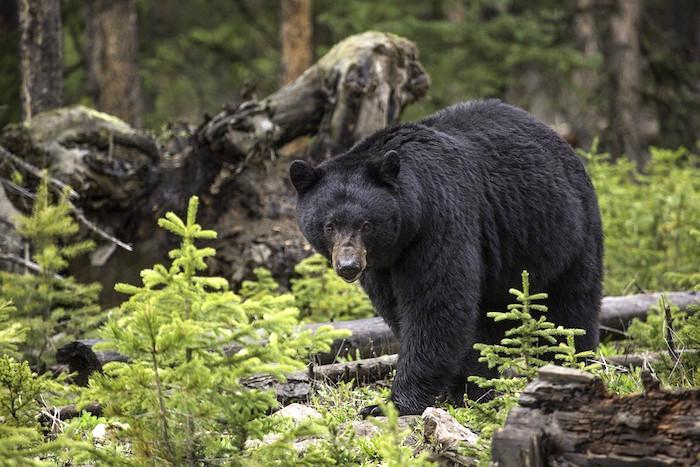
A drug overdose, not a bear attack, killed a man poaching ginseng in Great Smoky Mountains National Park last fall/NPS file
Drugs, not a bear, killed a Tennessee man who headed into Great Smoky Mountains National Park last fall to poach ginseng roots, according to the autopsy results.
Unfortunately, park officials decided in September that a bear believed to have fed on William Lee Hill, Jr.'s body might have attacked and killed him, so they killed it.
Hill had gone into the park last September 7 to hunt for ginseng, a high-priced root used by some as a traditional home medicine. Prices can go as high as $800 a pound for ginseng. While the root can be collected outside the park, it is illegal to do so inside the boundaries.
The man's body was found September 9 in the woods about 2 miles north of Cades Cove and about a half-mile from the Rich Mountain Road. When searchers found his body, which had signs of being fed on by predators, they also encountered a black bear that was acting aggressively towards them.
Since it wasn't known whether the bear had killed Hill or fed on his body, a decision was made to sedate the bear and place a GPS radio collar on it and let it go pending further information, park staff said at the time. The next day, park staff, in discussions with Superintendent Cassius Cash, decided to destroy the bear. Park staff announced on September 16 that the bear was killed that morning near where Hill's body was found.
The effort to kill the bear was complicated, requiring five shots over three days.
"The biologists spent several days tracking the bear and were consistently challenged by weather, terrain, thick vegetation, and the elusive behavior of the bear," park spokeswoman Dana Soehn told the Traveler in October. "The bear was located on the second day of tracking in a thick stand of rhododendron, and a biologist did attempt to shoot it, but the shot was not lethal. Three days later, park staff successfully located and euthanized the bear via gunshot (four shots)."
A necropsy on the bear indicated that it was not in a weakened condition and desperate for food. Its teeth were in good shape, and its belly was "full" of acorn meat," noted the pathologist, who made no mention of human remains in the stomach.
Park staff said Monday that they recently had received the autopsy report on Hill, and pathologists had determined that he had died of accidental methamphetamine intoxication.
"An autopsy revealed extensive postmortem animal predation, but no findings of antemortem/perimortem trauma (i.e. Mr. Hill was not attacked by a bear)," the report added.
Great Smoky is home to an estimated 1,500 bears. Very few bears exhibit aggressive behavior towards humans. Wildlife biologists and park rangers work hard to prevent bears from becoming food-conditioned or habituated to high-use areas. Out of an abundance of caution for the park's 11 million park visitors, park staff implement aversive-conditioning techniques and, on rare occasions, euthanize individual bears that pose a threat to visitor safety.



Comments
I don't get why they killed that innocent bear. Why didn't they wait to get the autopsy back before they went and killed it. They should be ashamed of themselves. That bear did nothing wrong and he died because of some addicted goof doing illegal stuff. People make me sick how they jump to always blame the animals of the land and just think it's ok to take them out.
I hate when any bear has to be put down, but in this situatio, where the bear showed aggression toward rangers, they made the correct decision.
The other man was my son and he notified Wills mother the same night that Will disappeared, not several days later. Wills mother contacted the police the next day after they went back up there looking for him and when he did not return home the next morning the police were notified. I really wish people would not throw out information that isn't true.